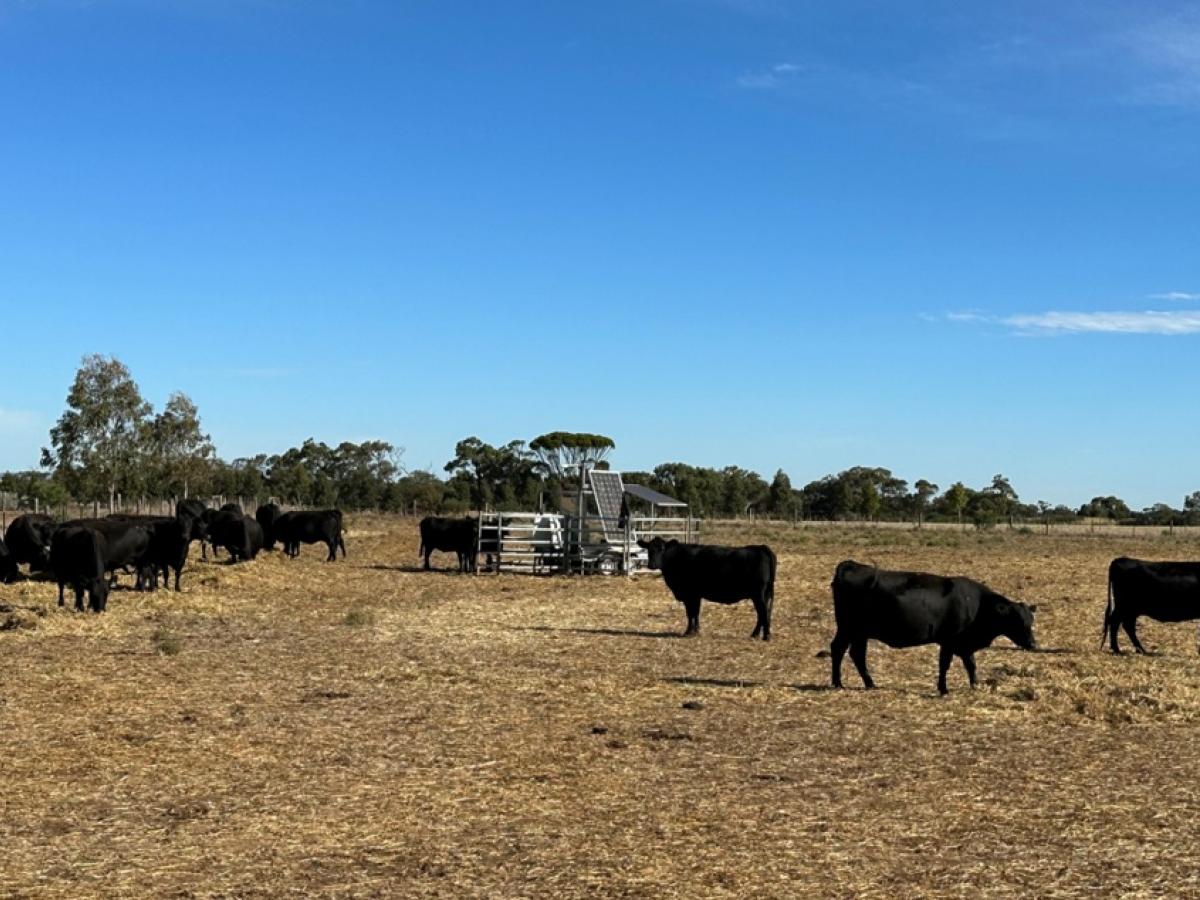
Direct livestock emissions account for around 15 per cent of Australia’s greenhouse gas emissions
A University of Adelaide-led study will investigate if mixing a variety of compounds, including biserrula, into cow feed that contains seaweed, can reduce the amount of methane produced by livestock.
The study will also breathe test livestock to record methane levels using a low-cost device that will make it more accessible for farmers.
The burps and farts of cows produce methane, a greenhouse gas that has 21 times more global warming potential than carbon dioxide and is accumulating in the atmosphere at the rate of one per cent per year.
Dr Mariana Caetano, lecturer in Animal Nutrition and Metabolism at the University of Adelaide, is keen to investigate the role of other feeds in combination with seaweed in reducing methane emissions, and its impact throughout the production cycle of beef cattle.
This includes the effect of a low dose seaweed supplementation given to pregnant cows and the long-term impact it has on methane emissions of calves.
“This project aims to trial and demonstrate innovative and cost-effective on-farm practices of reducing methane emissions throughout the production cycle considering low labour input on-farm,” Dr Caetano said.
“Biserrula and seaweed supplements will be used during times of feed shortage and low feed digestibility.
“Many other feeds that contribute to reducing methane will also be fed in combination with seaweed to reduce methane emissions in growing and finishing steers under intensive and extensive systems.”
Biserrula is a persistent pasture legume that grows in Mediterranean farming systems, while some of the other compounds that will be used include by-products, grains and unsaturated fatty acids used in livestock feeds.
“This project will provide new insights into seaweed supplementation throughout the beef cattle production cycle in southern Australia.”Dr Mariana Caetano
Direct livestock emissions account for around 15 per cent of Australia’s greenhouse gas emissions, so any reduction in that would make a substantial difference for generations to come.
“This project will provide new insights into seaweed supplementation throughout the beef cattle production cycle in southern Australia,” Dr Caetano said. “This project will demonstrate different approaches that can be used to reduce methane emissions in livestock.
“We will also continue evaluating and comparing two devices for measuring methane in livestock to see if a low-cost device can make the process more cost-effective and accessible to more Australian farmers.”
The project builds on the previous research Dr Caetano has undertaken on seaweed supplementation of pregnant cows and the comparison of two devices to measure methane in livestock funded by the Innovation hub.
The Commonwealth Government has provided $1,075,601 in funding for the project through the Methane Emissions Reduction in Livestock (MERiL) program.
The project is in partnership with CH4 South Australia, Australian Sustainable Seaweed Alliance, Mackillop Farm Management, Barossa Improved Grazing Group, SA Livestock Consultants, the Department of Primary Industries and Regions, South Australia, Regional Development Australia Barossa Gawler Light Adelaide Plains, Charles Sturt University and Agripartner Consulting.







